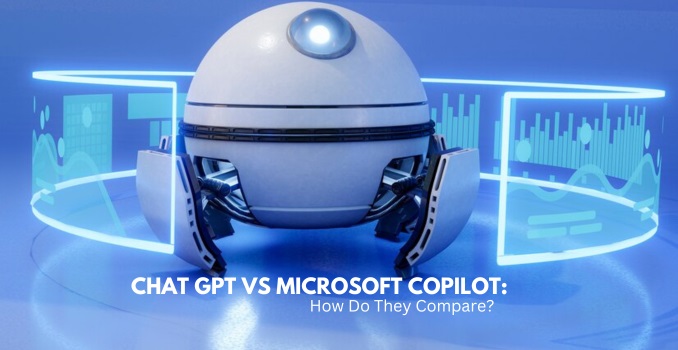The recent advancements in natural language processing (NLP) have led to the development of powerful AI models capable of generating code. Among these, ChatGPT and Microsoft Copilot have emerged as leading contenders, offering developers new ways to streamline their coding workflows. In this blog, we’ll delve into a technical comparison between these two AI-powered tools and explore their strengths, weaknesses, and suitability for different programming tasks.
Understanding the Technologies:
ChatGPT: Developed by OpenAI, ChatGPT is a large language model trained on a diverse corpus of text from the internet. It excels at understanding and generating human-like text across various domains, including code generation.
Microsoft Copilot: Built on top of OpenAI’s GPT technology, Microsoft Copilot is specifically tailored for code generation tasks. It leverages a vast dataset of publicly available code repositories to assist developers in writing code snippets and completing functions.
Code Generation Capabilities:
ChatGPT: While ChatGPT can generate code snippets, its primary strength lies in its ability to provide contextually relevant suggestions based on the provided prompt. It can assist with coding tasks by offering alternative solutions and explanations.
Microsoft Copilot: Copilot shines in generating entire functions or even entire files of code based on the context provided. It has a deeper understanding of programming languages and coding patterns, making it a powerful tool for accelerating the development process.
Language Support and Integration:
ChatGPT: Supports a wide range of programming languages and can be integrated into various development environments through APIs or plugins.
Microsoft Copilot: Initially focused on languages like Python, JavaScript, TypeScript, Ruby, and Go, Copilot continues to expand its language support over time. It seamlessly integrates with Visual Studio Code, GitHub, and other popular coding platforms.
Accuracy and Reliability:
ChatGPT: While ChatGPT excels in generating human-like text, its code generation capabilities may sometimes produce inaccurate or inefficient solutions, requiring human intervention for refinement.
Microsoft Copilot: Copilot’s code suggestions are generally more accurate and reliable, thanks to its training on a vast repository of code examples. However, occasional errors or misinterpretations can still occur, especially with complex or niche programming tasks.
Privacy and Security:
ChatGPT: OpenAI has implemented privacy safeguards and ethical guidelines to protect user data and mitigate potential misuse of the model.
Microsoft Copilot: Microsoft emphasizes privacy and security in its usage of Copilot, ensuring that sensitive code and intellectual property remain protected.
Summary:
In conclusion, both ChatGPT and Microsoft Copilot offer valuable assistance to developers in their coding endeavors. While ChatGPT provides broader language understanding and context-based suggestions, Microsoft Copilot excels in generating precise code snippets and completing programming tasks. Ultimately, the choice between these tools depends on the specific requirements of the project and the preferences of the developer.
About Computer Support Professionals:
As these AI-powered tools become increasingly integrated into the development workflow, Computer Support Professionals play a crucial role in ensuring their effective utilisation. They are tasked with providing guidance, troubleshooting assistance, and technical expertise to developers leveraging these tools. With their expertise in software development and system maintenance, Computer Support Professionals contribute to the seamless integration and optimal performance of AI technologies like ChatGPT and Microsoft Copilot in the coding ecosystem.
Also Read:




